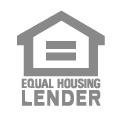A mortgage where the interest rate fluctuates over the loan's duration based on changes in an index rate. Also known as AMLs or VRMs (Variable-Rate Mortgages).
Gradual repayment of a mortgage loan, covering both principal and interest, through periodic installments.
A written assessment conducted by a qualified appraiser to estimate a property's value.
An individual or company that connects borrowers and lenders for loan origination.
Additional expenses incurred by property buyers and sellers beyond the property's price during ownership transfer. These costs typically include origination fees, property taxes, title insurance charges, escrow costs, and appraisal fees. The specific amounts vary by location and lenders.
A report detailing an individual's credit history, generated by a credit bureau, and used by lenders to assess a loan applicant's creditworthiness.
Valuables, funds, or documents deposited with a third party, to be released upon the fulfillment of specific conditions. For example, depositing funds or documents into an escrow account to be disbursed upon the closing of a real estate sale.
A mortgage with a constant interest rate throughout its entire term.
The maximum allowable interest rate specified in the mortgage note for adjustable-rate mortgages (ARMs).
The minimum allowable interest rate specified in the mortgage note for adjustable-rate mortgages (ARMs).
The ratio between the mortgage's principal balance and the property's appraised value (or lower sales price). For instance, a $100,000 home with an $80,000 mortgage has an LTV of 80 percent.
A fee paid to a lender for processing a loan application, often expressed as points. One point equals 1 percent of the mortgage amount.
The process of determining the maximum borrowing eligibility before formally applying for a loan.
Settling an existing loan using the proceeds from a new loan, using the same property as collateral.
A traditional 30-year mortgage with a constant interest rate and unchanging monthly payments. Suitable for long-term home ownership of seven years or more. Adjustable-rate loans are generally more cost-effective if planning to move within seven years. Qualifying for fixed-rate loans may be more challenging, but they can be advantageous when interest rates are low, as they lock in the rate for the entire loan duration.
The process of assessing a loan application to evaluate the lender's risk. This includes analyzing the borrower's creditworthiness and the property's quality.
